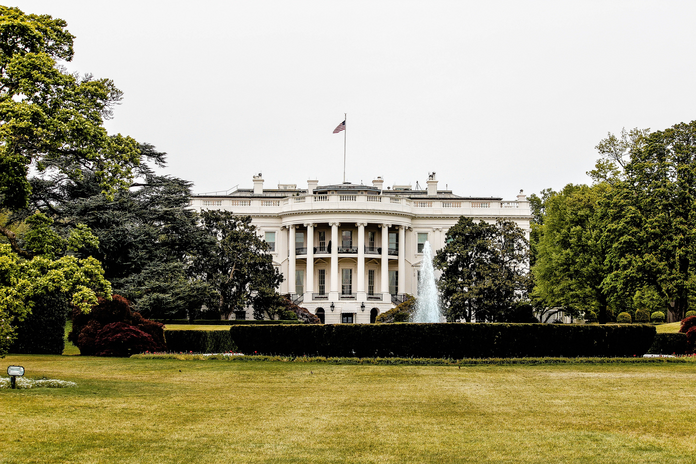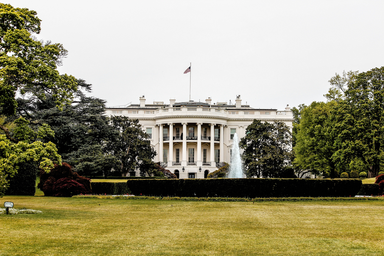CBS News Senior White House Correspondent Weijia Jiang discussed her experiences as a broadcast journalist under the Trump and Biden administrations at a virtual event hosted by Kennedy Political Union and AU’s School of Communication on November 11th.
The conversation with Jiang was moderated by SOC professor Priya Doshi and detailed her path to journalism.
Jiang was inspired to become a journalist at the ripe age of 13 when she won a competition through Channel One News to be a student anchor. She has since covered the shootings at Sandy Hook Elementary School, the Boston Marathon bombings, former president Trump’s impeachments, the 2020 Presidential election, and a number of other major news stories.
Exploring her role as an Asian American woman in the newsroom was one challenge Jiang faced as she navigated her entry into the field.
“I always had the belief that there could only be one,” she explained. “If I already saw that there was an Asian-American journalist, I was discouraged from applying there or thinking that I would have a chance.”
However, since entering the field, Jiang has seen a turn in the country where diversity is becoming more inherently valued and less of a forced conversation.
Jiang’s memoir entitled “Other,” set to release in Spring 2022, further explores her experiences as an Asian American journalist.
Regarding her coverage of violence against the Asian American and Pacific Islander (AAPI) community, Jiang discussed the importance of finding a balance between connecting with victims and maintaining objectivity in her reporting.
“You have to make sure that you are being objective in your reporting even though you’re not an objective person,” Jiang said. “Professionally, you have to remove yourself to an extent, but also I thought it was of value to be able to […] connect with the victims that I was covering.”
Jiang makes a conscious effort to empathize with community members and build relationships with people of diverse backgrounds. Exposing herself to the variety of perspectives that exist within the community allows her to ask questions that represent the population as a whole.
The role of a political journalist, according to Jiang, is to make tangible the ways in which policies affect people.
“Even though there are people who aren’t particularly interested in politics,” she said, “everybody is interested in policy that is going to change their daily lives.”
The COVID-19 pandemic has made this a difficult feat, especially under the Trump administration. Jiang explained that Trump’s challenges against science often forced journalists to do the extra work to speak with doctors and researchers in order to fact-check in real-time.
“I felt the weight of it,” she said, “because the information we were giving to people was a matter of life and death decisions. And it was not dramatic to say that.”
In the wake of increasing levels of distrust in the media, Jiang said journalists have to continue doing the best work possible to maintain balance and present the most truthful information available. At the same time, the consumer has a responsibility to analyze the validity of what they consume.
Jiang found herself in a national spotlight on several occasions, specifically for challenging former president Trump. She discussed the importance of trying not to take attacks personally, but rather understand them as efforts to deflect from a headline that the subject might not like.
“I had to remember what I was doing and focus on the questions that I was trying to get answered,” Jiang recalled about her own experiences as a victim of racist comments. “No matter what you’re covering, you cannot let the subject control the story.”
Although it is not a journalist’s role to be an activist, according to Jiang, they do have a duty to call out injustices from people in power for those at home who can’t.
“If something is racist,” she said, “it deserves to be called out, because it impacts not only the direct people that the comment might be aimed toward, but also it gives a license to other people to use the same sort of language.”
Having begun her career in the White House under the Trump administration, Jiang initially did not have a point of reference to compare her experiences. With the election of President Biden, Jiang now identifies several key distinctions between the two administrations, including the recent return of a daily press conference. However, she emphasized that Biden does not make himself available to the press in the same unprecedented way that Trump did through his use of social media.
Jiang expressed that Trump transformed communication tactics through his use of Twitter. She elaborated saying, “It gave us an open window into the president’s thinking […] For four years, we were glued to our phones and glued to social media.”
Jiang gave two key pieces of advice to aspiring journalists: to understand the ways that policies affect people and to expose yourself to as many different communities and people as possible.
“The most important quality that any journalist has is curiosity,” she said. “Immerse yourself in diverse experiences and build relationships with people who are nothing like you […] It can’t just be a job; journalism is a lifestyle.”


